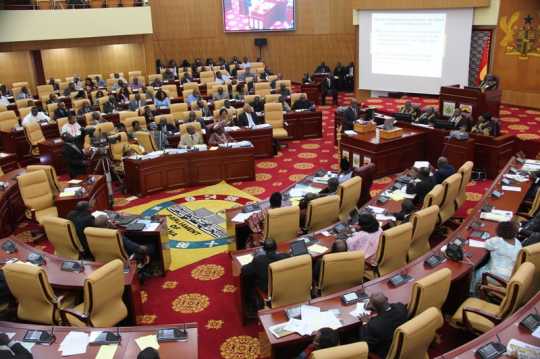Ghana’s Supreme Court is set to commence hearings on a case that threatens the country’s $20 billion debt restructuring deal while simultaneously testing the World Bank’s commitment to LGBTQ rights support.
At the heart of the legal battle is a challenge to legislation that seeks to criminalize LGBTQ identities in Ghana.
The contentious law not only proposes severe penalties for individuals identifying as LGBTQ but also threatens punishment for those who fail to report individuals to the authorities, including family members, co-workers, and teachers.
If the Supreme Court upholds the legislation, Ghana risks not only perpetuating discrimination but also jeopardizing crucial financial support from international institutions, including the World Bank.
The implications extend beyond Ghana’s borders, potentially setting a precedent for how the World Bank engages with issues of LGBTQ rights and human rights more broadly across the globe.
The stakes are high for Ghana’s economy, which has been grappling with a heavy debt burden. The leaked memo from the finance ministry in April warned that endorsing the legislation could endanger approximately $3.8 billion of World Bank funding over the next five to six years.
Furthermore, it could derail a $3 billion bailout program from the International Monetary Fund (IMF) and hamper efforts to restructure the country’s $20 billion of external liabilities.
The legal challenge comes amidst a broader debate about the balance between national sovereignty, international lending standards, and human rights. The World Bank, a significant source of development finance for Ghana, finds itself caught in a delicate position.
While it has historically emphasized non-discrimination and social standards in its lending practices, it also faces pressure to respect the sovereignty of the countries it engages with.
Ghana’s debt restructuring and economic recovery efforts hinge on continued support from international financial institutions like the World Bank and the IMF.
However, the outcome of the Supreme Court case could complicate these efforts, potentially leading to a withdrawal of financial assistance and further economic instability.
The situation underscores the complexities of navigating the intersection of economic development, human rights, and national sovereignty.
As Ghana’s Supreme Court prepares to hear arguments on the LGBTQ legislation, the outcome of the case remains uncertain, leaving both advocates for LGBTQ rights and supporters of Ghana’s debt restructuring deal anxiously awaiting a decision that could shape the country’s future trajectory.

 Naira4 weeks ago
Naira4 weeks ago
 Billionaire Watch4 weeks ago
Billionaire Watch4 weeks ago


 Naira4 weeks ago
Naira4 weeks ago


 Naira3 weeks ago
Naira3 weeks ago




 Naira3 weeks ago
Naira3 weeks ago




 Naira3 weeks ago
Naira3 weeks ago




 Naira2 weeks ago
Naira2 weeks ago
 Commodities3 weeks ago
Commodities3 weeks ago






















